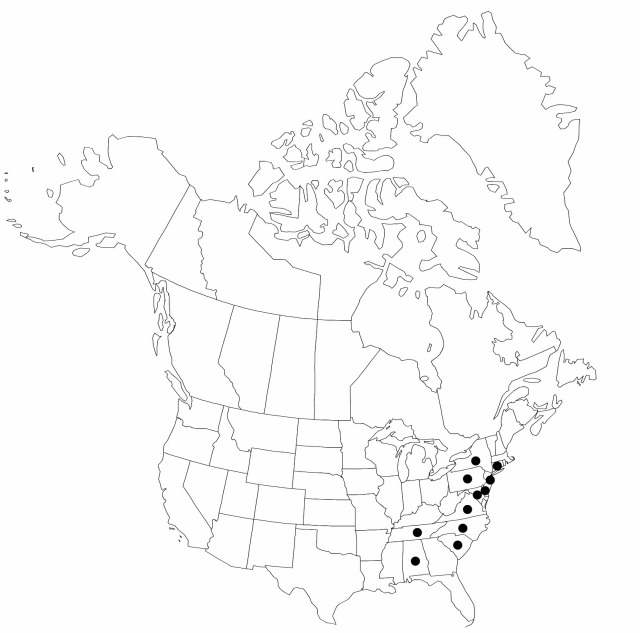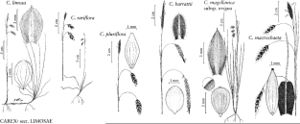Carex barrattii
Ann. Lyceum Nat. Hist. New York 1: 361. 1825.
Culms aphyllopodic, without dead leaf remains at base, 20–90 cm. Leaf blades 2–5 mm wide, margins revolute, scabrid at tip. Inflorescences: proximal bracts 2–7 cm, shorter than inflorescences; lateral spikes usually androgynous, (10–)25–50 × 3.5–6 mm, with 20–80 perigynia; terminal spikes 20–50 × 2.5–5 mm. Pistillate scales ovate, 2.4–4 × 1.3–1.8 mm, shorter and as wide as or slightly narrower than perigynia, apex obtuse to acute. Staminate scales oblong-obovate, 3.7–4.5 × 1.2–2 mm, apex obtuse. Anthers 2.6–2.9 mm. Perigynia 2.5–3.5 × 1.2–2 mm, apex rounded; beak 0.1–0.5 mm.
Phenology: Fruiting late spring–early summer.
Habitat: Bogs, swamps, wet woods, primarily on acidic substrata
Elevation: 0–500 m
Distribution

Ala., Conn., Del., Md., N.J., N.Y., N.C., Pa., S.C., Tenn., Va.
Discussion
Carex barrattii is in the Center for Plant Conservation’s National Collection of Endangered Plants.
Selected References
None.
